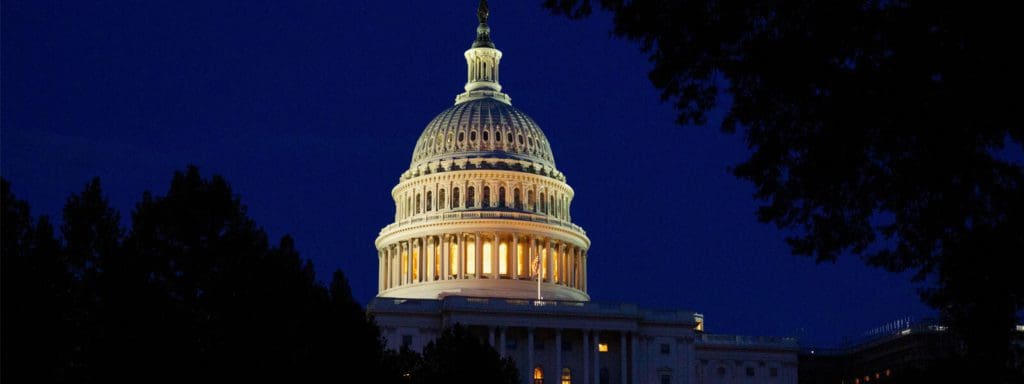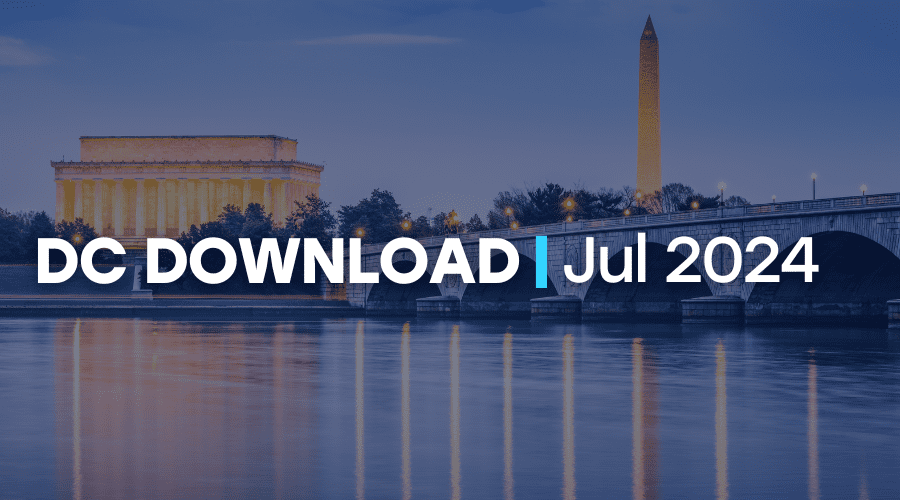March has brought wonderful things to Washington, DC, like the end of phase one of the budget reconciliation process with the passage of the colossus American Rescue Plan, the cherry blossoms, and important updates for the nonprofit sector. If you have been busy trying to keep up with the news or baseball spring training, fear not, here is an overview of the latest legislative issues impacting nonprofits during these challenging times:
Bipartisan, Bicameral Charitable Giving Legislation Introduced
On March 9, the Universal Giving Pandemic Response and Recovery Act (UGPRRA) was introduced both in the House and the Senate. This legislation would establish, for 2021 and 2022, a temporary universal charitable deduction up to one-third of the standard deduction (roughly $4,000 for an individual filer and $8,000 for married joint filers in 2021).
In the Senate, Senators James Lankford (R-OK), Jeanne Shaheen (D-NH), Tim Scott (R-SC), Amy Klobuchar (D-MN), Chris Coons (D-DE), Mike Lee (R-UT), Catherine Cortez Masto (D-NV), and Susan Collins (R-ME) introduced S. 618. In the House, Representatives Chris Pappas (D-NH) and Jackie Walorski (R-IN) introduced H.R. 1704.
Under the CARES Act, Americans who donate to charities, religious organizations, and other nonprofits were able to claim a $300 charitable deduction on their 2020 returns. The end-of-year relief bill also further extended the universal charitable deduction through 2021 and expanded it so that those filing jointly can claim up to $600.
American Rescue Plan Signed Into Law
After a long budget reconciliation process, both the House and the Senate passed the American Rescue Plan and the $1.9 trillion relief package was signed into law on March 11, 2021. The House gave its final approval on March 10, after the Senate made changes to the original bill, to comply with Senate budget rules and to gain the support of moderate Democrats.
The package allocated money for vaccines, schools, small businesses, nonprofits, and anti-poverty programs. It also expanded access to the Paycheck Protection Program (PPP), increased the federal unemployment insurance reimbursement rate for some nonprofits, and delivered funding to state, tribal, and local governments, providing critical relief for charities in a time of dire need. You can access Independent Sector’s summary of the provisions relevant for the nonprofit sector in the American Rescue Plan here.
Congress Approves Extension of Paycheck Protection Program
On March 25, the Senate passed H.R. 1799, legislation extending the deadline to apply for the Paycheck Protection Program (PPP) from March 31 to May 31, 2021. In addition to extending the window for applying for the loans, the bill also gives the Small Business Administration (SBA) until June 30 to process the applications. The House voted in favor of extending the PPP deadline last week and the bill was signed by the president on Tuesday, March 30.
Earlier this month, the nonprofit sector and the Relief4charities coalition advocated for an extension of the application deadline for PPP in a letter addressed to SBA Administrator Isabel Guzman. The letter also included concerns and proposed fixes to PPP for nonprofit organizations.
IS Urges Treasury Secretary Yellen to Exclude Charitable Deduction from Proposed 28% Cap
On March 15, Independent Sector sent a letter to Treasury Secretary Yellen asking to exempt the charitable deduction from a 28% cap limitation and request a meeting to discuss the concerns of the charitable community regarding this proposal. The letter underscores the current challenges faced by charitable nonprofits, the damage that such a cap would do to those in need, and the sector’s history of strong opposition to this proposal.
Giving Increased by Small Donors
Charitable giving grew 10.6% in 2020 over 2019. Charities benefited from gifts of all sizes from people in a broad array of income levels. Small donors, however, outdid more affluent Americans, The Chronicle of Philanthropy reported.
Gifts of less than $250 grew by 15.3% over 2019. Gifts of $250 to $999 increased 8%. And gifts of $1,000 or more increased 10.4%. The overall number of donors grew by 7.3% over 2019. These results are from the Fundraising Effectiveness Project. The increase in giving could be attributed to the fact that last year Congress enacted a $300 charitable deduction in the CARES Act for all taxpayers whether they itemize or not.
An Update on Nonprofit Job Loss
According to the latest report from The Center for Civil Society Studies (CCSS) at Johns Hopkins University, as of February 2021, the nonprofit workforce remained down by over 926,000 jobs compared to February 2020 levels, representing a 7.4% decline over the first year of the pandemic. These lost jobs include nearly 35% of all workers in nonprofit arts and entertainment organizations; 14.6% of nonprofit education workers; 10% of all workers in nonprofit religious, grant-making, and civic associations; 7.5% of workers in nonprofit social service institutions; and nearly 4% of nonprofit health care workers.
IRS Provides Guidance for Employers Claiming the Employee Retention Credit for 2020
On March 1, the Internal Revenue Service (IRS) issued guidance for employers claiming the employee retention credit under the Coronavirus Aid, Relief, and Economic Security Act (CARES Act), as modified by the Taxpayer Certainty and Disaster Tax Relief Act of 2020 (Relief Act) for calendar quarters in 2020. The guidance in Notice 2021-20 PDF is similar to the information in the employee retention credit FAQs, but includes clarifications and describes retroactive changes under the new law applicable to 2020, primarily relating to expanded eligibility for the credit.



